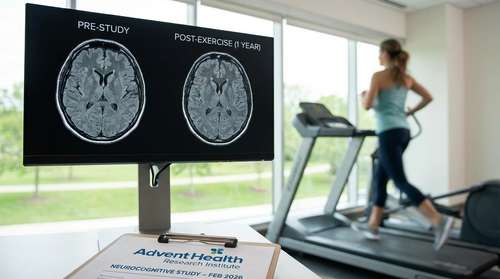Pop star Justin Bieber announced his face is partially paralyzed by a viral illness Ramsay Hunt syndrome, which is caused by the same virus that causes chicken pox and shingles.
The virus had affected "the nerve in my ear, facial nerves, and has caused facial paralysis," he said in a YouTube video on Friday. "You can see this eye is not blinking. I can't grin on this side of my face. This nostril will not move," he said.
https://twitter.com/bieberfever/status/1535368929224593410?s=20&t=YtjkvCOc0TGlyH9KSE0BAw
Bieber promised his supporters that he will "get well" and that he was performing "facial exercises to get my face back to normal."
"It will go back to normal -- it's just time and we don't know how much time, but it's going to be OK," he said in the video. "Obviously my body's telling me I gotta slow down. I hope you guys understand and I'll be using this time to just rest and relax and get back to 100%."
According to Mount Sinai, full recovery is not certain. Some recover in a few months, though. The earlier it is caught the better the chance of recovery.
What is Ramsay Hunt syndrome?
 When the varicella-zoster virus infects a nerve in the inner ear, it causes Ramsay Hunt syndrome, a rare neurological condition. The virus can stay dormant in the body after having chickenpox as a child or shingles as an adult. It's unclear why the virus reactivates and causes Ramsay Hunt symptoms.
The disease was named after James Ramsay Hunt, an American neurologist who originally characterized it in 1907. Hunt also identified two more disorders.
The illness "occurs when a shingles outbreak damages the facial nerve near one of [the person's] ears," according to Mayo Clinic.
When the varicella-zoster virus infects a nerve in the inner ear, it causes Ramsay Hunt syndrome, a rare neurological condition. The virus can stay dormant in the body after having chickenpox as a child or shingles as an adult. It's unclear why the virus reactivates and causes Ramsay Hunt symptoms.
The disease was named after James Ramsay Hunt, an American neurologist who originally characterized it in 1907. Hunt also identified two more disorders.
The illness "occurs when a shingles outbreak damages the facial nerve near one of [the person's] ears," according to Mayo Clinic.
Symptoms and signs
 According to the Icahn School of Medicine at Mount Sinai, symptoms include a painful rash inside and outside the ear canal, which can also affect the tongue and roof of the mouth. People with the illness may have vertigo (the impression of dizziness or things spinning around you) or tinnitus (a ringing in the ear) as a result of the inner ear involvement.
Ramsay Hunt syndrome can also result in hearing loss on the affected side of the face. It can also induce weakness, facial drooping, or paralysis on the side of the face that has been infected by the virus, similar to Bieber.
That weakness can cause difficulty with closing one eye, making facial expressions and eating, as food can fall out of the side of the weakened mouth.
Meanwhile, rash and painful blisters may also affect the mouth, soft palate, and top portion of the throat.
People who suffer from Ramsay Hunt syndrome may also experience:
According to the Icahn School of Medicine at Mount Sinai, symptoms include a painful rash inside and outside the ear canal, which can also affect the tongue and roof of the mouth. People with the illness may have vertigo (the impression of dizziness or things spinning around you) or tinnitus (a ringing in the ear) as a result of the inner ear involvement.
Ramsay Hunt syndrome can also result in hearing loss on the affected side of the face. It can also induce weakness, facial drooping, or paralysis on the side of the face that has been infected by the virus, similar to Bieber.
That weakness can cause difficulty with closing one eye, making facial expressions and eating, as food can fall out of the side of the weakened mouth.
Meanwhile, rash and painful blisters may also affect the mouth, soft palate, and top portion of the throat.
People who suffer from Ramsay Hunt syndrome may also experience:
- otalgia or ear pain
- temporary hearing loss
- tinnitus or ringing in the ears
- difficulty closing one eye
- vertigo or a sensation of spinning or moving
- changes in taste perception or loss of taste
- dry mouth and eyes
- In some cases, ear pain can be intense and can potentially spread to affect the neck. Hearing loss can also become permanent in rare cases.
Prevention and treatment
According to studies, pain from Ramsay Hunt syndrome and long-term problems can be reduced or avoided by using specific drugs, such as:
Acyclovir (Zovirax), famciclovir (Famvir), and valacyclovir (Valtrex) are antiviral medications that can help fight the chickenpox virus.
Prednisone and other corticosteroids can make antiviral medicines work better.
Anti-anxiety drugs, such as diazepam (Valium), can aid with vertigo.
Pain medications to help with the severe pain of Ramsay Hunt syndrome.
"Most authorities concur that starting antiviral medication within three days of onset appears to have the greatest effect," NORD explained, "since fast diagnosis and management appears to improve outcomes."
"Further treatment is targeted at specific symptoms that each individual exhibits," it stated.
Steroids, such as prednisone, are used to reduce inflammation, as well as pain relievers. Antiviral medications for the herpes family, such as acyclovir or valacyclovir, may be recommended at times.
 When the varicella-zoster virus infects a nerve in the inner ear, it causes Ramsay Hunt syndrome, a rare neurological condition. The virus can stay dormant in the body after having chickenpox as a child or shingles as an adult. It's unclear why the virus reactivates and causes Ramsay Hunt symptoms.
The disease was named after James Ramsay Hunt, an American neurologist who originally characterized it in 1907. Hunt also identified two more disorders.
The illness "occurs when a shingles outbreak damages the facial nerve near one of [the person's] ears," according to Mayo Clinic.
When the varicella-zoster virus infects a nerve in the inner ear, it causes Ramsay Hunt syndrome, a rare neurological condition. The virus can stay dormant in the body after having chickenpox as a child or shingles as an adult. It's unclear why the virus reactivates and causes Ramsay Hunt symptoms.
The disease was named after James Ramsay Hunt, an American neurologist who originally characterized it in 1907. Hunt also identified two more disorders.
The illness "occurs when a shingles outbreak damages the facial nerve near one of [the person's] ears," according to Mayo Clinic.
 According to the Icahn School of Medicine at Mount Sinai, symptoms include a painful rash inside and outside the ear canal, which can also affect the tongue and roof of the mouth. People with the illness may have vertigo (the impression of dizziness or things spinning around you) or tinnitus (a ringing in the ear) as a result of the inner ear involvement.
Ramsay Hunt syndrome can also result in hearing loss on the affected side of the face. It can also induce weakness, facial drooping, or paralysis on the side of the face that has been infected by the virus, similar to Bieber.
That weakness can cause difficulty with closing one eye, making facial expressions and eating, as food can fall out of the side of the weakened mouth.
Meanwhile, rash and painful blisters may also affect the mouth, soft palate, and top portion of the throat.
People who suffer from Ramsay Hunt syndrome may also experience:
According to the Icahn School of Medicine at Mount Sinai, symptoms include a painful rash inside and outside the ear canal, which can also affect the tongue and roof of the mouth. People with the illness may have vertigo (the impression of dizziness or things spinning around you) or tinnitus (a ringing in the ear) as a result of the inner ear involvement.
Ramsay Hunt syndrome can also result in hearing loss on the affected side of the face. It can also induce weakness, facial drooping, or paralysis on the side of the face that has been infected by the virus, similar to Bieber.
That weakness can cause difficulty with closing one eye, making facial expressions and eating, as food can fall out of the side of the weakened mouth.
Meanwhile, rash and painful blisters may also affect the mouth, soft palate, and top portion of the throat.
People who suffer from Ramsay Hunt syndrome may also experience:




